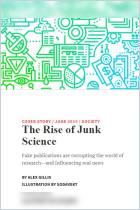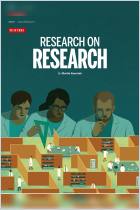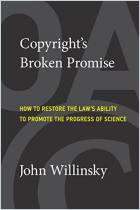
Article
English Is the Language of Science. That Isn’t Always a Good Thing
How a bias toward English language science can result in preventable crises, duplicated efforts and lost knowledge
Smithsonian,
2017
Recommendation
When a new strain of flu jumps from birds to pigs, the next stop may be humans. Fortunately, when this happened in 2004 with the deadly strain of avian flu H5N1, Chinese scientists caught the change early. Unfortunately, no one took notice of their research, despite its vital importance. Why? Because the research was written in Chinese and published in a Chinese journal. The text wasn’t translated until 8 months later – a fatal delay for a deadly flu. This article from the Smithsonian will interest anyone concerned with the dissemination of our most vital resource: information.
Summary
About the Author
Ben Panko is a digital science writer for Smithsonian magazine.

















Comment on this summary or 开始讨论